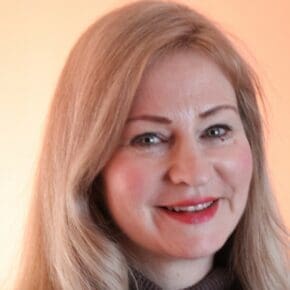My debut novel, The Reluctant Fortune-Teller, will be published in March 2018 by Harper Collins/ Harlequin/ Park Row Books.
The online Writing a Novel course offered by Faber Academy and Professional Writing Academy is very much a part of how I bridged the gap between aspiring to write a novel and actually writing one.
I’d like to share with you just how the course helped me write my novel, and give you a few suggestions for getting your own novel published.
First of all, I’d like you to know that I just turned sixty. No matter what your age is as you begin to write the novel you will finish, know this: you are right on time.
I always thought I’d write my first novel by thirty, at the latest. My life’s path took other turns instead.
This book is different from the book I might have written earlier on. For one thing, this book is funnier.
When I was in my thirties, I tried twice to write novels. Both times, I gave up about 10,000 words in. As I look back, I understand why:
- I lacked community, encouragement, and structure.
- I didn’t know that I should study how a novel is constructed. I hoped that the novel would just pour out coherently as a natural process.
I kept my writing a secret because I believed the often-repeated advice to never talk to anyone about a work in progress. Talking about it supposedly diminished the creative energy in the idea.
Now I know that — at least, for me — that’s nonsense. In fact, talking about it helps me develop my ideas.
Reading others’ novel ideas, sharing my own, and exchanging reactions—all of this made the writing process feel like a shared adventure.
– Keziah Frost
How did Faber Academy help me?
Once I committed to a six-month course and began to know the other participants and the tutor, Tom Bromley, and once I saw a syllabus with deadlines and word counts, my vague notion of a completed novel transformed into a tangible plan.
Now I had support.
Reading others’ novel ideas, sharing my own, and exchanging reactions—all of this made the writing process feel like a shared adventure.
The other writing students got to know and like Norbert, my main character, and I became fascinated with their characters as well.
When they told me that they laughed (at all the right parts, fortunately), I knew that my story had humour to offer its readers, and that kept me writing.
As we hit glitches or hit targets, we supported one another. It was reassuring. It was energizing.
The participants spanned a wide age range and wrote in just about every genre. Most were British and a few were American, like me.
Most of my own favourite authors happen to be British, so it was especially exciting for me to be in such company. It was stimulating to feel a part of an international community of new writers.
At first I tried to write thrillers, but they kept turning funny. At last I realized my own need to be in a fictional world that was charming and humorous. I made myself happy writing about that world.
– Keziah Frost
Do I have advice on getting published?
Yes!
- Check out MS Wish List. This is a website where agents list what kind of work they are looking for. Find out which agents represent the kind of work you have. It’s a waste of time to send your adult science fiction novel to an agent who only represents children’s books. I found my excellent agent, Danielle Bukowski of Sterling Lord Literistic, on MS Wish List.
- I used Query Tracker to keep track of all the query letters I sent out. You will want to do that, too, and be prepared to be rejected repeatedly; it’s just part of the game. You sure don’t want to be sending your work to an agent who already rejected it once; that’s why you use a site to help you keep track. You can see how many queries are out at a given time, and where they all are in the process. I have read the advice: do not stop querying until you have queried one hundred agents. I planned to go to one hundred if necessary.
- I mentioned above that the novels I write (so far) are funny ones. That is because I follow—and suggest you might also follow—the common advice to “write the book you want (or need) to read.” Which are the books that make you feel grateful to the author for having written them? My own answer would be: books that make me laugh. Authors like P.G. Wodehouse, D.E. Stevenson, Stella Gibbons, and E.F. Benson. They build a world I would like to live in, and they make me laugh out loud. At this point in history, I personally feel that we need the endorphins generated by laughter–just to get us through. At first I tried to write thrillers, but they kept turning funny. At last I realized my own need to be in a fictional world that was charming and humorous. I made myself happy writing about that world. I hope that, if you are kind enough to pick up my book, it will make you feel happy, too.
Please subscribe to Keziah’s blog where you’ll find writerly advice, as well as other things of interest to bookish people.
























